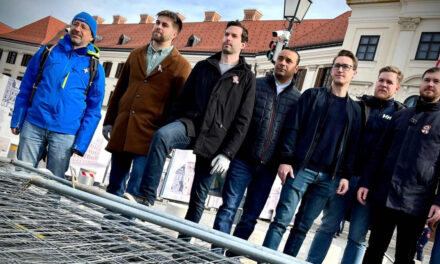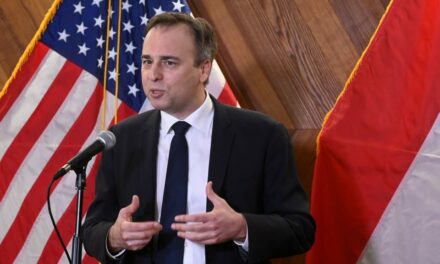Dear opposition, if even in times of crisis it is not possible to increase support at least a little, it really is time for a radical introspection! It will not be an easy year, in fact, according to some, it will be very difficult. Inflation, utility bills, the threat of recession and energy supply uncertainties in Europe, a never-ending war in the neighborhood - we can hardly even list the challenges. The Covid epidemic has just ended (?), and society and the government have received another crisis package.
Now we really need a bachelor on the dam, we could say.
Of course, this is probably evidence, as well as the fact that the deterioration of conditions is usually accompanied by a drastic weakening of the current government power and, at the same time, an increase in the value of the opposition. It is enough to look back at the most recent major crises, 2006 and 2008 - the MSZP-SZDSZ tandem was able to maintain its power during the cycle, but it was constantly forced to govern under the burden of a loss of social trust. The "burdened" has not yet recovered from the rejection established at that time, the moral and economic failure seems to have recorded indelible memories in the collective memory. Obviously, the right wing "worked" for this as well. And even the fact that since then new generations have entered the camp of voting age does not change this.
And after twelve years of Fidesz government, last April, the "offensive" left-liberal conglomerate with the face of Péter Márki-Zay and the appearance of uniformity and expertise suffered a bigger defeat than ever before.
The people didn't get bored of Viktor Orbán, they didn't fall out of favor with the bourgeois side, three million of them pulled the plug this time too.
The rest of the year 2022 turned out to be increasingly gloomy due to the war, sanctions and the development of world politics, the rebound after the coronavirus epidemic, the growth that can be said to be unique even at the EU level, was quickly restrained by the "checks and balances" caused by external circumstances . There is no doubt: during the restart, which was forced to do without EU funds, broad sections of society, young people, pensioners and family members benefited a lot from the expansion of state benefits, consumption picked up, and according to statistics, it also led to savings for many.
But then dilemmas soon followed regarding the potential benefits of recession and growth, runaway energy prices, debates and question marks about the sustainability of price caps, the possibilities of counterbalancing embargoes against Russia, etc.
The new year was greeted in a crisis atmosphere, the government was also transformed, the central bank and the cabinet fell on each other, while the issue of EU subsidies was finally settled according to our current knowledge.
The near future is still rather uncertain, as if we were driving in a fog, tomorrow, the day after tomorrow, is barely visible.
The leaders of individual countries are forced to constantly re-plan, and in most cases they are forced to face violent demonstrations and social discontent - not to mention pressure from the direction of the liberal mainstream press, for example in connection with the Russian-Ukrainian conflict.
All of this can be considered a lean description of the situation. Balázs Orbán, political director of the prime minister, presented and conveyed Prime Minister Viktor Orbán's thoughts in the columns of Mandiner
You can argue with it, even disagree with it, one thing is certain: it contains achievable goals and tasks, which both follow from the Hungarian foundations of the previous decade and the development of the world around us. This is a rethinking of sovereignist politics, a collection of theses proposing connection instead of disconnection.
The full note in Mandiner can be read here.
Author: Dániel Kacsoh
Image: Facebook













